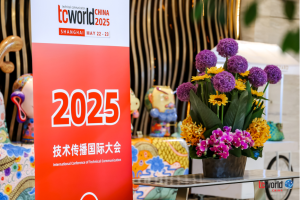In the ongoing wave of globalization, many leading brands that have already succeeded in their domestic markets are now turning their attention overseas. They seek to seize new business opportunities abroad as their domestic markets gradually saturate, aiming to find their second growth curve. However, an increasing number of brands have discovered, after struggling overseas, that the seemingly vast and boundless journey of globalization is actually fraught with thorns. With a moment's carelessness, the growth in distant lands can turn into immediate pitfalls.
Globalization — the inevitable path of corporate development
Nearly all businesses face the question of how to expand and strengthen their market reach when their business in the local market starts to slow down. At this point, an irresistible option emerges: going global. For the vast majority of mature enterprises, globalization is an inevitable path of development because it helps them:
- Expand international markets: According to World Bank statistics in 2023, excluding the superpowers of the United States and China, the GDP of over 170 economies worldwide accounts for nearly 60% of the global total. None of these individual economies contribute more than 5% to the global GDP. Both developed countries in Europe and America and emerging economies across continents present vast market potential.
- Optimize resource allocation: In addition to pursuing higher market shares and revenue, most companies also consider optimizing their resource allocation by setting up global supply chains and manufacturing capabilities to enhance overall competitiveness through cost reduction and efficiency improvement.
- Diversify operational risks: For companies, a single market, no matter how large, means putting all their eggs in one basket. In expanding overseas markets, besides seeking new business opportunities, companies can also mitigate the risks of resource concentration in production, operation, and sales processes. The more globalized a company becomes, the stronger its ability to resist operational risks.
In recent years, represented by tech and manufacturing companies such as Huawei, Lenovo, Haier, Midea, Hisense, Alibaba (Lazada), ByteDance (TikTok), Pinduoduo (Temu), and Transsion (Tecno), Chinese enterprises are rapidly marching towards globalization.
The Real Challenges of Globalization
The complexities of globalization lie beneath the glossy surface of success stories, such as those of Toyota, Nike, and Apple, which have become benchmarks across various industries. People often mistakenly believe that these legends can be easily replicated as they achieve tremendous commercial success through globally dispersed research, manufacturing, and marketing centers. However, the reality is far more intricate, with each market possessing its unique characteristics. A brand highly popular in one market may be entirely overlooked in another. Behind a few success stories lie countless lessons of failure for most enterprises:
- Cultural differences: Despite being a global leader in glass manufacturing, Fuyao Glass faced unprecedented challenges when establishing a North American supply chain through the acquisition of a General Motors factory in 2016. On one hand, Cao Dewang, the chairman, believed that American workers not only lacked efficiency but also constantly clashed with management, significantly inflating operational costs. On the other hand, American workers complained about the lack of safety in the factory and the disregard for environmental protection. These vast cultural differences between China and the United States led to the factory facing imminent closure. However, Fuyao eventually achieved profitability by hiring American management who better understood Chinese culture and gradually bridging the gap with workers using a more American approach.

According to an analysis report published by Deloitte, cultural differences are responsible for at least 30% of all failed integration and merger cases
- Geopolitics: In May 2018, then-US President Trump abruptly announced the United States' withdrawal from the Iran nuclear deal and initiated “the most severe” economic sanctions against Iran. At the same time, the US Treasury Department immediately issued notifications declaring that sales licenses issued to companies like Boeing and Airbus would be revoked. Prior to this, Iran Air had already placed orders for 200 civilian aircraft with these companies, with the procurement orders with Boeing alone exceeding $20 billion.
https://www.cnbc.com/2018/05/08/iran-deal-fallout-boeing-may-lose-20-billion-in-aircraft-deals.html
- Legal regulations: On May 22, 2023, the Irish Data Protection Commissioner ruled that Facebook's long-standing practice of transferring European Union user data to the United States constituted a serious violation of GDPR (General Data Protection Regulation) provisions concerning the privacy of EU user data. The ruling ordered its parent company, Meta, to immediately cease such infringing behavior and pay a fine of €1.2 billion, setting a record for fines under GDPR since its implementation in 2016.
https://edition.cnn.com/2023/05/22/tech/meta-facebook-data-privacy-eu-fine/index.html
- Business environment: In 2007, British telecommunications giant Vodafone acquired assets of a telecommunications company owned by Li Ka-shing in India. However, the Indian authorities subsequently demanded a substantial tax payment for the transaction, issuing a tax bill exceeding $2.5 billion. Vodafone argued that according to Indian tax laws at the time, the transaction was not subject to taxation in India. They appealed to the Supreme Court of India and won the case in 2012. But unexpectedly, after losing the case, the Indian government immediately amended the law and allowed retroactive application for several decades. As a result, the Indian High Court not only overturned the original ruling, declaring Vodafone's loss, but also added interest, penalties, and fines to the pending bill, ultimately raising the total to $5.1 billion. Subsequently, Vodafone appealed to the International Court of Arbitration in The Hague and won again. Pressure from various countries was also exerted on the Indian government, allowing Vodafone to narrowly escape but still suffering significant financial lo
https://www.reuters.com/article/idUSKCN26G1CK/
Selling Soy Milk and Deep-Fried Dough Sticks Like KFC
For businesses to achieve the same level of commercial success in different markets, it's impossible to rely solely on simple copy-and-paste strategies. Instead, they need to focus on localized operations and management while anchoring themselves in a globalized strategy. As two giants in the global fast-food industry, KFC and McDonald's both entered China almost simultaneously, but they took radically different paths. Unlike McDonald's, which focused on building a “Western fast food” brand image around central cities, KFC chose to reach smaller and medium-sized cities. At the same time, with a localized menu development strategy, KFC quickly blended into the everyday dietary choices of ordinary Chinese families.
Although McDonald's has a far larger global store count than KFC, KFC has twice the number of stores in China. From items like the Old Beijing Chicken Roll and Sichuan Beef Wrap to the deep-fried dough sticks and soy milk, as well as the themed limited menus featuring various regional delicacies and the now wildly popular “Crazy Thursday” meme across social media, KFC in China has transformed from a foreign fast-food brand to a cultural symbol in the minds of food consumers.
Conclusion
Amidst the wave of globalization, any enterprise aiming to successfully enter foreign markets must combine global strategy with local operations. Only by fully understanding the language, culture, customs, policies, regulations, and business environment of the target market can a company better equip its products and services to meet the challenges of new customers. In this process, partnering with professional language service providers is crucial because what enterprises need in their globalization journey is not just translation but a comprehensive solution for product and service expansion overseas. Excellent language service providers often possess extensive experience in empowering globalization, offering services far beyond the language itself. They can provide significant value to enterprises, helping them turn challenges into opportunities on their globalization journey and ultimately leading them to success in overseas markets.




![[Regulatory Update] Egypt Imposes New Certification Rules for Manual Translations [Regulatory Update] Egypt Imposes New Certification Rules for Manual Translations](https://maxsuntranslation.com/wp-content/uploads/2025/06/Egypt-Imposes-New-Certification-Rules-for-Manual-Translations-1-300x109.png)

